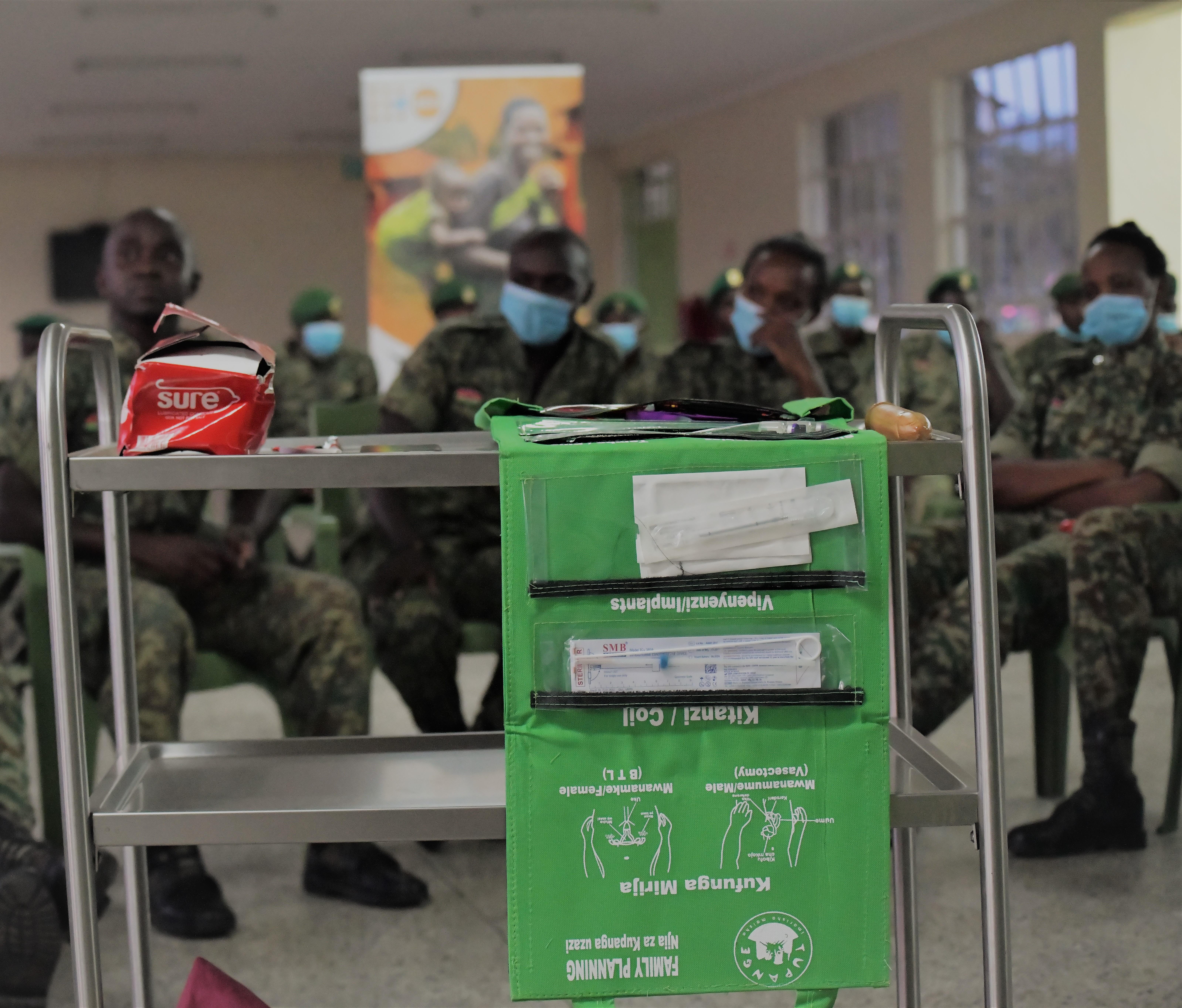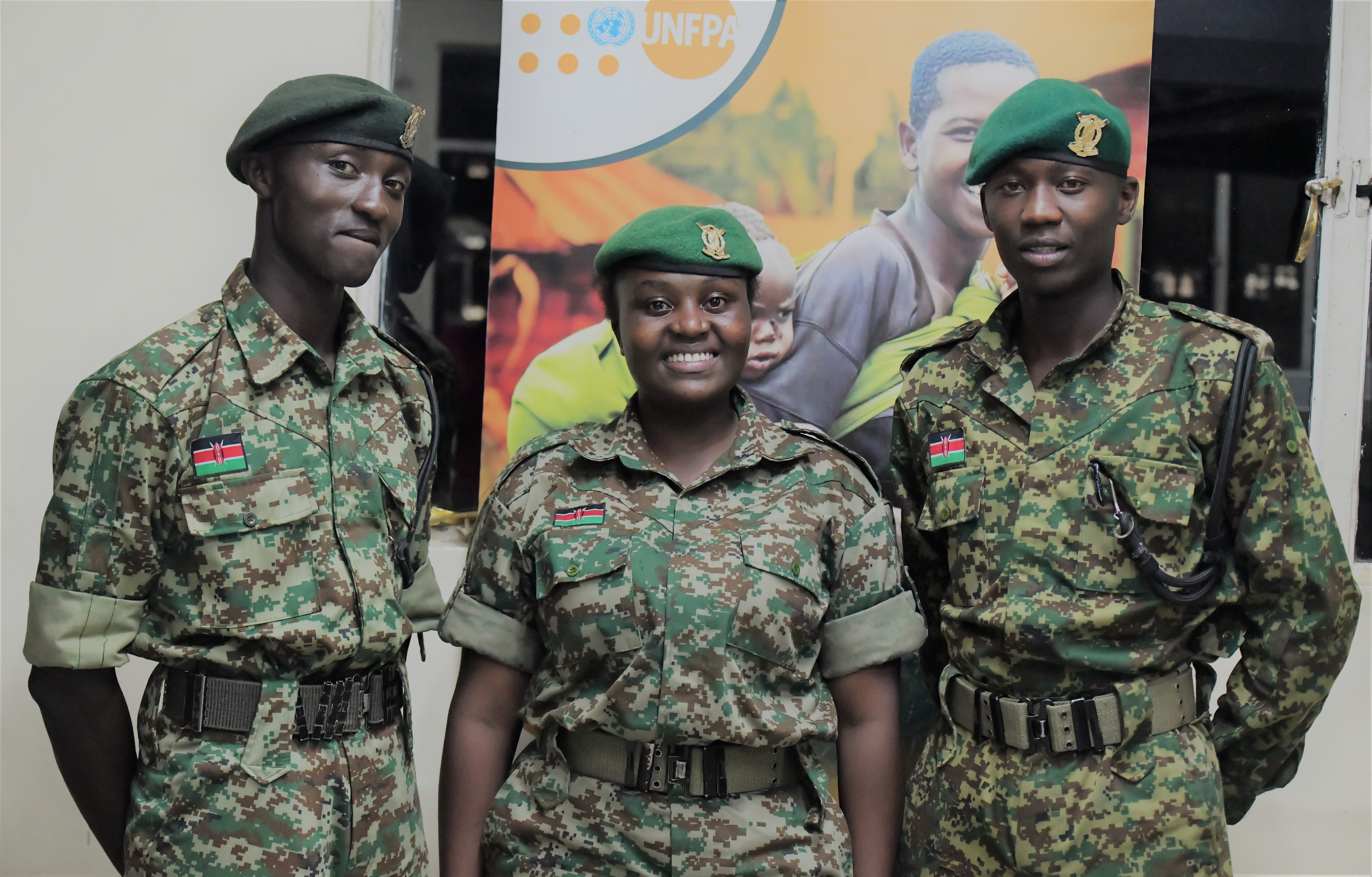Shortly after graduating from high school, 22-year-old Doris Kemunto enrolled in the National Youth Service (NYS), a voluntary work and educational program for young Kenyans that offers paramilitary and vocational training. The government program recruits over 30,000 youth annually aged between 18-22 years who undergo non-combat paramilitary training after which they take part in national service before enrolling in technical and vocational training. “I joined the service to benefit from the training and connect with other young people,” says Ms. Kemunto.
In 2016, UNFPA partnered with the Ministry of Health and the youth-focused organization, I Choose Life (ICL), to develop a sexual and reproductive health training module for young people enrolled in youth empowerment programs such as the NYS.
“We launched the training to improve access to sexual and reproductive health information and services for the youth who often lack safe spaces to discuss such issues,” says ICL Deputy Regional Training Manager, Shadrack Biwott. This lack of information is confirmed by recruits, Isaac Tewendi and Michael Okoth, who are currently undergoing training at the NYS unit in Gilgil Town, Nakuru County. “Out there, parents rarely talk to their children about sexual health, and sometimes as young people, we are too embarrassed to ask other adults about these issues," says 23-year-old Tewendi.

The program is currently being implemented in NYS units in Nairobi, Kisumu, and Gilgil, with planned expansion to all 23 units across the country. Training sessions are held every Wednesday and Saturday evening where recruits receive information on life skills, contraception, sexual and gender-based violence, drug and substance abuse, menstrual health, and sexually transmitted infections (STIs), including HIV and AIDS.
Out there, parents rarely talk to their children about sexual health, and sometimes as young people, we are too embarrassed to ask other adults about these issues
NYS staff members who have themselves undergone training on sexual and reproductive health coordinate the weekly sessions as institutional instructors and counselors. They combine learning with entertainment elements such as skits, short films, poetry, and songs to sensitize the youth on various topics. “At the beginning of the training, some of the young people are hesitant to even touch a condom packet or ask sex-related questions,” says trainer Perry Gitonga.
This attitude is changing as more recruits attend the learning sessions. “Coming from high school, I had this perception that contraceptives are only to be used by married women, but I now know that all women of reproductive age have a right to access contraceptive methods of their choice,” says Kemunto.

young people's sexual and reproductive health issues as part of the training program. © UNFPA Kenya
According to unit nurse, Mildred Bayachi, the training has had an impact on recruits seeking care at the unit dispensary. “They are now more open to discussing issues such as contraception and sexually transmitted infections, and are not afraid to ask for services like HIV testing and condoms when needed,” she says.
It is estimated that approximately 331,835 adolescent girls in Kenya aged between 10-19 became pregnant in 2020 (KHIS). Approximately 14,400 new HIV infections occurred among young people between the ages of 15-24 years in 2019, representing 34% of all new infections (NACC, 2020). “Meeting the youth need for accurate information on sexual and reproductive health is crucial to promoting healthy and responsible behaviors, and the prevention of infectious diseases and unintended pregnancies,” says UNFPA Adolescent and Youth lead, Kigen Korir.
Approximately 14,400 new HIV infections in Kenya occurred among young people between the ages of 15-24 years in 2019, representing 34% of all new infections (NACC, 2020)
So far 81,487 young people enrolled in the national youth service have been reached with sexual and reproductive health information and services delivered through periodic health drives organized by the partners. “The health drives offer contraceptives information, screening for sexually transmitted infections (STI), breast and cervical cancer screening, and referrals free of charge to youth who would otherwise not have access,” says Biwott.


